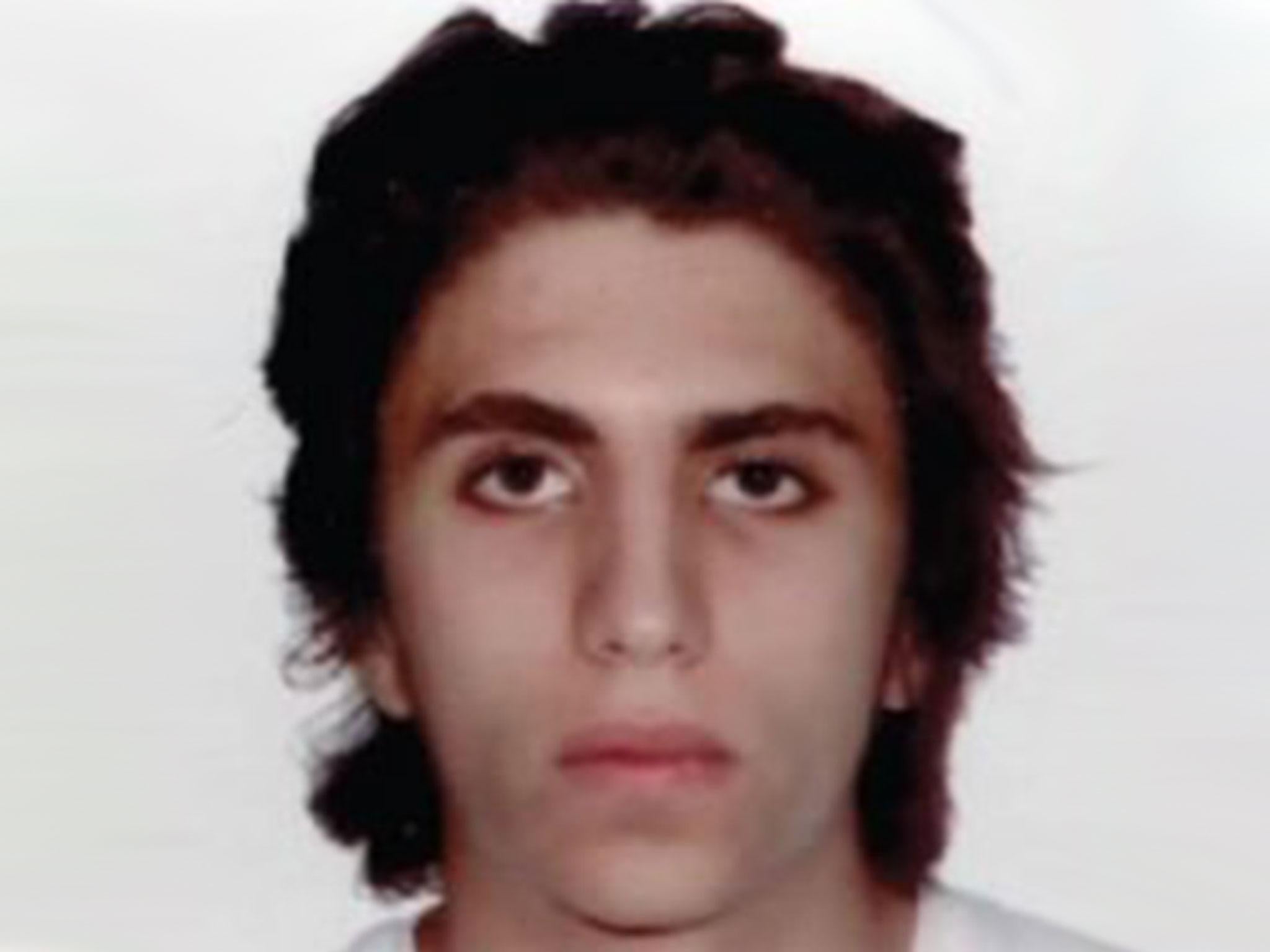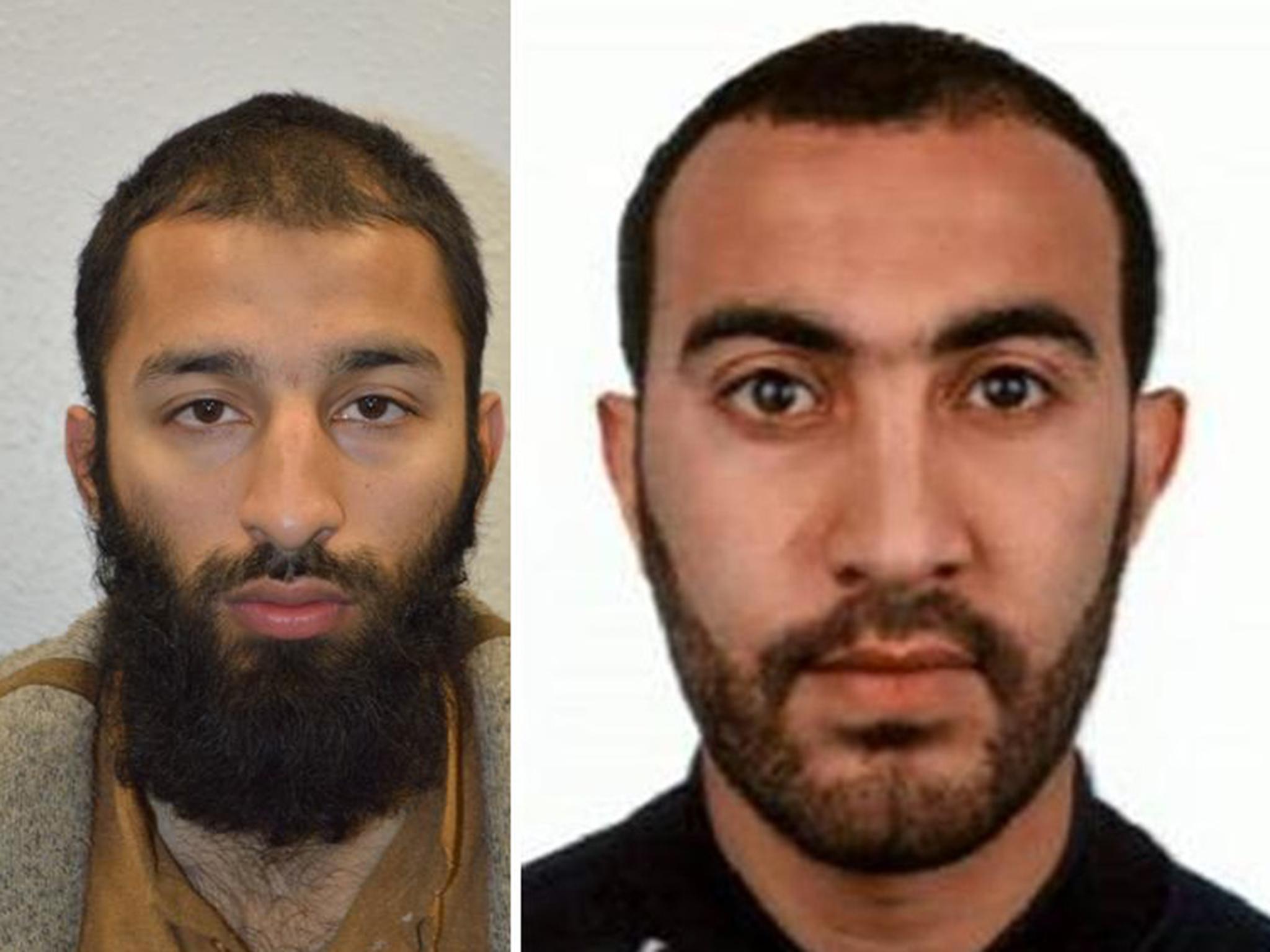London attacker Khuram Butt 'cautioned by police over extremist behaviour' six months before rampage
Security services let ringleader slip through net despite links to known Islamist group

The suspected ringleader of the London Bridge attack was cautioned over extremist behaviour in January, it has emerged amid questions over how the trio of terrorists were able to launch the atrocity.
Khuram Butt was known to police and MI5 after publicly associating himself with Anjem Choudary and other extremists in his Islamist network.
Having insulted a counter-extremism campaigner at a protest praising the murder of Lee Rigby in 2013, Butt was reported again to police for assaulting a moderate imam last July.
Dr Usama Hasan said Butt “started screaming” abuse at him during a family funfair celebrating the Islamic festival of Eid in London.
“He tried to assault me, he ran at me with an expression of hatred in his face,” he added, describing how he ran as family members wrestled Butt away from his target.
Relatives took photos of the assailant, who they did not recognise as he accused Dr Hasan of “taking money from the government to work against Muslims ... spying on Muslims” and called him an “apostate”.
Bystanders said Butt had been kicked out of a local mosque for spouting extremist views, which have since been revealed to include the assertion that voting was “un-Islamic”.
Dr Hasan believes the jihadi recognised him because of his work as head of Islamic studies for counter-extremism organisation Quilliam.
He called police over July’s assault, telling officers the unidentified attacker bore all the hallmarks of Choudary’s banned al-Muhajiroun group.
“In my view they are affecting national security, they must be monitored, they are clearly part of the pro-Isis network,” Dr Hasan told the BBC.
“Butt was eventually tracked down after about six months and cautioned.”
The Metropolitan Police would not confirm what action was taken against Butt in January, saying his background would form part of their investigation.
A caution can be issued with or without a formal arrest, and may impose conditions on the offender.
Butt was already known to British security services over his links to Choudary, who has subsequently been jailed for inviting support of Isis, and members of his inner circle.
In a documentary on Islamist extremists broadcast last year, Butt was shown with the group publicly praying to a black flag associated with jihadi groups, then arguing with police.
Jesse Morton, a former al-Qaeda recruiter who became an FBI aide after being jailed, said his communications with Butt dated back several years.
He described him as the “administrator” for renamed factions of al-Muhajiroun on an online chat platform used by extremists.
“He wasn’t a key figure but I knew Khuram Butt as someone who was a sympathiser and supporter of our cause,” Mr Morton told The New York Times.
“[After being released in 2015] I noticed Khuram and expanded his influence inside the al-Muhajiroun network.”
In a report for the FBI that year, Mr Morton said he identified the extremist, who used an Islamic name in extremist circles, as someone who “might sustain the message” despite a crackdown on leaders including Choudary.
Scotland Yard confirmed Butt was “known to the police and MI5”, adding: “However, there was no intelligence to suggest that this attack was being planned and the investigation had been prioritised accordingly.”
His accomplice Rachid Redouane, was not known to authorities for extremism, but the third named attacker, Youssef Zaghba, had been put on a Europe-wide watchlist after attempting to travel to Syria and telling Italian police he “wanted to be a terrorist”.
“Work is ongoing to understand more about them, their connections and whether they were assisted or supported by anyone else,” a spokesperson for police said.
The way the trio met remains unclear, but a European intelligence official told The New York Times Zaghba was introduced to Butt by an Italian faction of al-Muhajiroun.

Zaghba, an Italian citizen of Moroccan descent, lived in east London while working in a Pakistani restaurant in Ilford.
But he continued to visit his mother in Bologna, attempting to travel from the Italian city to Syria in Mach last year, and telling police who stopped him he “wanted to be a terrorist”.
Zaghba’s mother believed he was radicalised in London, saying: “He spent his time with the wrong kind of people."
He and Redouane appear to have been friends, reportedly being seen together at a café next to a betting shop in Newham.
Police raided a flat above the row of shops this week, but residents told The Independent the people they were looking for had moved on.
Butt, whose family were from Pakistan, and Redouane lived in nearby Barking, where both had young children.
Redouane, who claimed to be from both Morocco and Libya, had been denied asylum in the UK in 2009 but moved back to London after gaining an EU residency card by marrying a woman in Ireland.
His estranged wife, Charisse O'Leary, said the pair split six months ago but neighbours said Redouane continued to visit their young daughter at her home.
“While she was at work he used to come here with friends,” a neighbour told The Sun.

“I think they used the flat to plan the attack ... on Saturday he was here with Khumar Butt.”
After the split, Redouane had moved to a rented bedsit in nearby Dagenham that was raided by police in the aftermath of the terror attack.
It sits in a property known as the Little Yellow House on the A13, which has previously been used by swingers’ clubs for sex parties.
Police said Redouane, who worked as a pastry chef, also used the surname Elkhdar and Rachid al-Magrabi.
There were reports he had fought against Muammar Gaddafi’s forces at the start of the Libyan civil war in 2011, where he potentially could have come into contact with Manchester bomber Salman Abedi and his family.
Investigators are not treating the two atrocities as linked but Theresa May has warned of the risk of copycat attacks, saying: “Terrorism breeds terrorism.”
Isis has claimed responsibility for the attacks in London Bridge, Manchester and Westminster, having released detailed instructions on how to carry out massacres using vehicles and knives.
The group has called on supporters around the world to launch intensified attacks during the Islamic holy month of Ramadan, as it seeks to maintain momentum while losing swathes of territory in Syria and Iraq.
Join our commenting forum
Join thought-provoking conversations, follow other Independent readers and see their replies
Comments